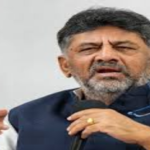Mumbai lost out to Bengaluru on the technology front due to poor infrastructure which made the financial capital “unaffordable”: Deputy CM Fadnavis.

Maharashtra Deputy Chief Minister Devendra Fadnavis on Thursday said Mumbai lost out to Bengaluru on the technology front because of poor infrastructure which made the financial capital “unaffordable”.
Fadnavis, who has served as the Chief Minister for a full term and came back as the Deputy Chief Minister last year, said the state is redoubling its focus on the infrastructure front.
“… We lost a lot to Bengaluru, I must agree, because we didn’t create infrastructure,” Fadnavis said here speaking at a conference. It can be noted that the capital of Karnataka is home to a slew of technology companies, global delivery centres and also innovative startups due to which it is frequently referred as India’s Silicon Valley.
Fadnavis said it was “unaffordable” for businesses to stay in Mumbai, which led them to Bengaluru and Hyderabad. The BJP leader said now the state is creating quality infrastructure like the Trans Harbour sea link and a network of metro railways which will open up newer areas for development and also bring down rentals.
Additionally, the airport in Navi Mumbai is also being constructed and a huge data center capacity in the satellite city will also help. The 22-Km long Mumbai Trans Harbour Link (MTHL) will be thrown open for traffic by early next year, Fadnavis said, adding that work is also underway on a coastal road on the western coast.
Navi Mumbai is home to nearly two-thirds of the overall data center capacity being put up in the entire country, Fadnavis said.Maharashtra is the real startup capital because 15,000 out of the 80,000 registered startups are in the state, Fadnavis said, adding the state is also home to 25 unicorns and the highest number of profitable startups.
Initiatives from the government have helped generate ₹1,000 crore in investments into 800 fintech companies by 500 investors, he added. He said the physical infrastructure, coupled with the data connectivity, will help the state achieve its aspiration of having USD 1 trillion in GSDP. Stating that 28,000 villages have been now connected with optic fibre, Fadnavis also exhorted the tech industry to come up with solutions to help address the education and healthcare challenges.
Technology has helped save over ₹2 lakh crore because of direct transfers and also plugged leakages, Fadnavis said, adding that the savings creates resources which can be ploughed in for common good.






